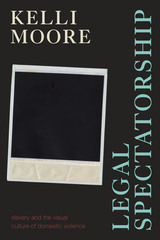3 books about Discrimination in justice administration

Disappearing Rooms
The Hidden Theaters of Immigration Law
Michelle Castañeda
Duke University Press, 2023
In Disappearing Rooms Michelle Castañeda lays bare the criminalization of race enacted every day in US immigration courts and detention centers. She uses a performance studies perspective to show how the theatrical concept of mise-en-scène offers new insights about immigration law and the absurdist dynamics of carceral space. Castañeda draws upon her experiences in immigration trials as an interpreter and courtroom companion to analyze the scenography—lighting, staging, framing, gesture, speech, and choreography—of specific rooms within the immigration enforcement system. Castañeda’s ethnographies of proceedings in a “removal” office in New York City, a detention center courtroom in Texas, and an asylum office in the Northeast reveal the depersonalizing violence enacted in immigration law through its embodied, ritualistic, and affective components. She shows how the creative practices of detained and disappeared people living under acute duress imagine the abolition of detention and borders. Featuring original illustrations by artist-journalist Molly Crabapple, Disappearing Rooms shines a light into otherwise hidden spaces of law within the contemporary deportation regime.
Duke University of Press Scholars of Color First Book Award Recipient
Duke University of Press Scholars of Color First Book Award Recipient
[more]

Incarceration and Race in Michigan
Grounding the National Debate in State Practice
Lynn O. Scott
Michigan State University Press, 2019
State and local policies are key to understanding how to reduce prison populations. This anthology of critical and personal essays about the need to reform criminal justice policies that have led to mass incarceration provides a national perspective while remaining grounded in Michigan. Major components in this volume include a focus on current research on the impact of incarceration on minority groups, youth, and the mentally ill; and a focus on research on Michigan’s leadership in the area of reentry. Changes in policy will require a change in the public’s problematic images of incarcerated people. In this volume, academic research is combined with first-person narratives and paintings from people who have been directly affected by incarceration to allow readers to form more personal connections with those who face incarceration. At a time when much of the push to reduce prison populations is focused on the financial cost to states and cities, this book emphasizes the broader social and human costs of mass incarceration.
[more]

Legal Spectatorship
Slavery and the Visual Culture of Domestic Violence
Kelli Moore
Duke University Press, 2022
In Legal Spectatorship Kelli Moore traces the political origins of the concept of domestic violence through visual culture in the United States. Tracing its appearance in Article IV of the Constitution, slave narratives, police notation, cybernetic theories of affect, criminal trials, and the “look” of the battered woman, Moore contends that domestic violence refers to more than violence between intimate partners—it denotes the mechanisms of racial hierarchy and oppression that undergird republican government in the United States. Moore connects the use of photographic evidence of domestic violence in courtrooms, which often stands in for women’s testimony, to slaves’ silent experience and witnessing of domestic abuse. Drawing on Harriet Jacobs’s Incidents in the Life of a Slave Girl, abolitionist print culture, courtroom witness testimony, and the work of Hortense Spillers, Moore shows how the logic of slavery and antiblack racism also dictates the silencing techniques of the contemporary domestic violence courtroom. By positioning testimony on contemporary domestic violence prosecution within the archive of slavery, Moore demonstrates that domestic violence and its image are haunted by black bodies, black flesh, and black freedom.
Duke University Press Scholars of Color First Book Award recipient
Duke University Press Scholars of Color First Book Award recipient
[more]
READERS
Browse our collection.
PUBLISHERS
See BiblioVault's publisher services.
STUDENT SERVICES
Files for college accessibility offices.
UChicago Accessibility Resources
home | accessibility | search | about | contact us
BiblioVault ® 2001 - 2024
The University of Chicago Press









